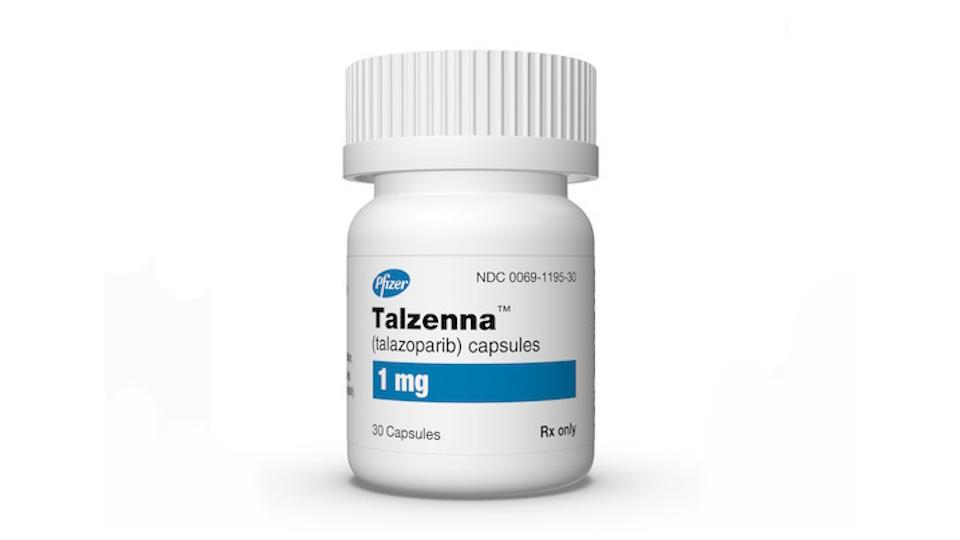NICE backs Pfizer’s Talzenna for advanced breast cancer

Pfizer’s PARP inhibitor Talzenna has become the first targeted treatment for HER2-negative locally advanced or metastatic breast cancer with BRCA1/2 mutations to be recommended by NICE for routine NHS use.
The health technology assessment (HTA) agency has given a green light for the use of Talzenna (talazoparib) for adult patients with this type of breast cancer who have previously been treated with anthracycline or taxane chemotherapy, or both, unless these treatments are not suitable.
In the case of patients with hormone receptor-positive tumours, they should also have received prior endocrine therapy unless that was not recommended.
The new guidance comes after Pfizer agreed an increased discount on Talzenna and provides a new treatment option for around 300 people who would otherwise be looking at chemo and best supportive care as their only option, according to NICE.
The UK list price of the drug is £4,965 for 30x1mg capsules and £1,655 for 30x 0.25mg capsules, with a recommended starting dose of 1mg that can be reduced stepwise to 0.25mg if patients experience adverse reactions that stop them from continuing treatment.
The recommendation gives Talzenna a niche free of competition from AstraZeneca and MSD’s market-leading PARP inhibitor Lynparza (olaparib), which was recommended last year as an adjuvant treatment for patients with earlier-stage HER2-negative, BRCA-positive breast cancer after first-line chemotherapy.
Helen Knight, director of medicines evaluation at NICE, said that the guidance “addresses a significant need by giving people with these types of cancer access to an additional treatment,” adding that, as a once-daily oral therapy, it is more convenient than chemo, which has to be given intravenously in hospital.
“Although some uncertainty in the clinical evidence remains, when considering the impact of advanced breast cancer and its effect on quality and length of life, the improved discount from the company means we can now recommend talazoparib for use in the NHS,” she added.
Talzenna was approved for marketing in this setting based on the EMBRACA clinical trial, an open-label, phase 3 study that showed that the PARP inhibitor extended the time patients lived without their cancer getting worse compared with chemotherapy. The trial did not show any difference in overall survival.
“People who have an inherited BRCA mutation have an increased chance of developing breast cancer and often at a younger age than those without the gene mutation,” commented Chris Twelves, director of NIHR Leeds Clinical Research Facility and professor of clinical cancer pharmacology and oncology.
“Today’s decision is an important advance in expanding treatment options for eligible patients who currently have limited alternative treatments.”
NICE guidelines also apply to Wales and Northern Ireland although the Department of Health in NI does review NICE guidelines locally for applicability. In addition, the indication is under consideration by the Scottish Medicines Consortium (SMC) and advice is expected in March, according to a Pfizer spokesperson.













